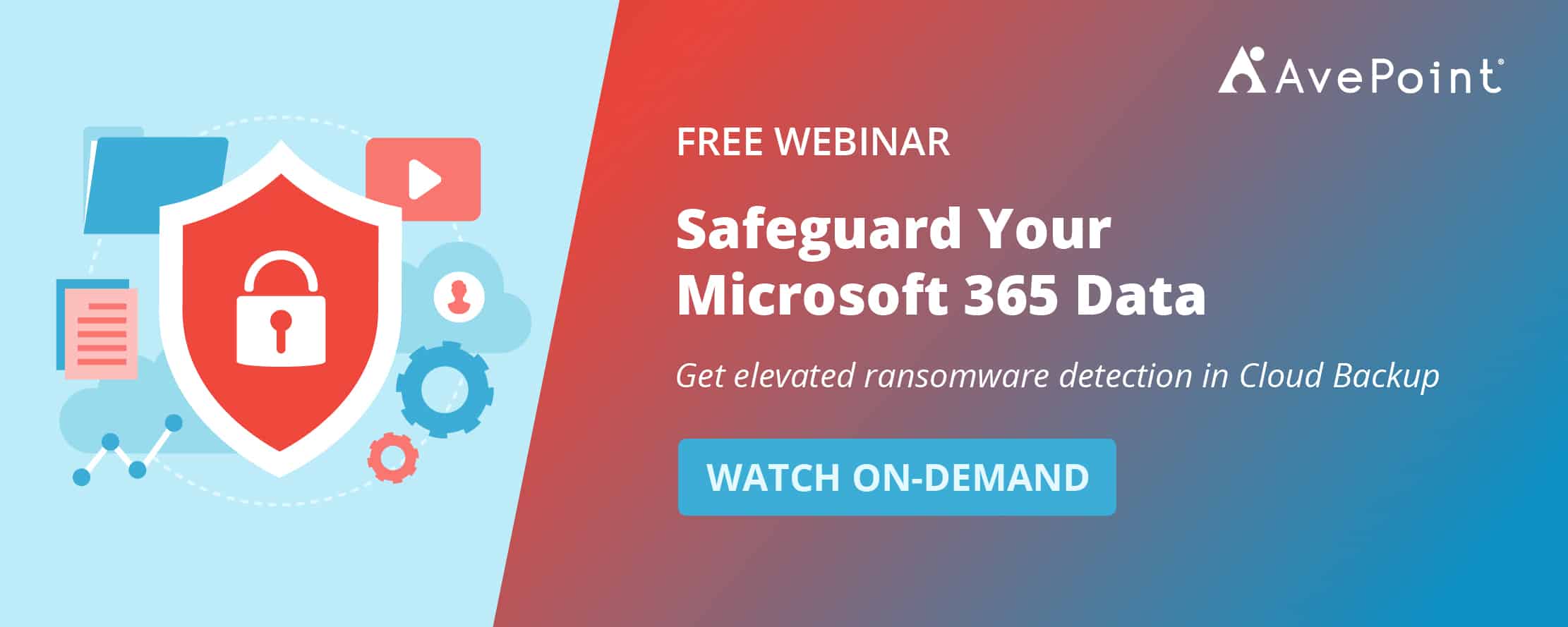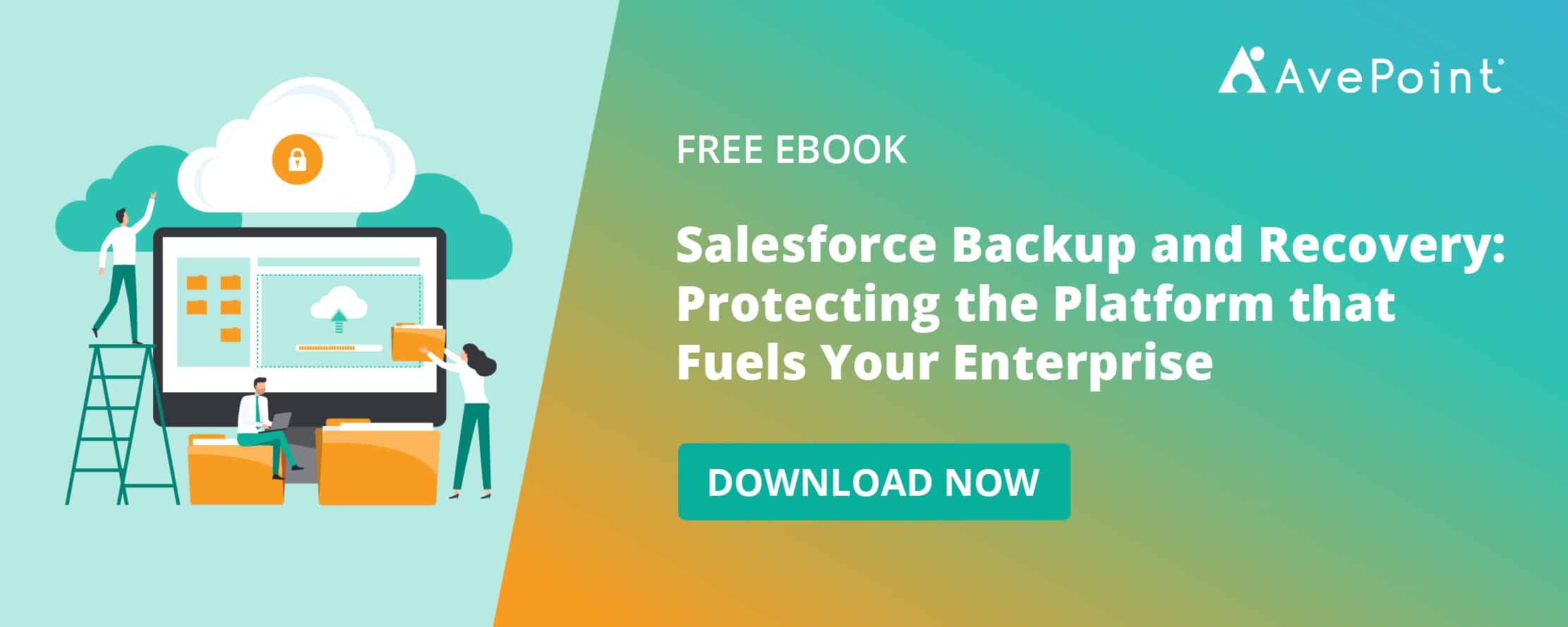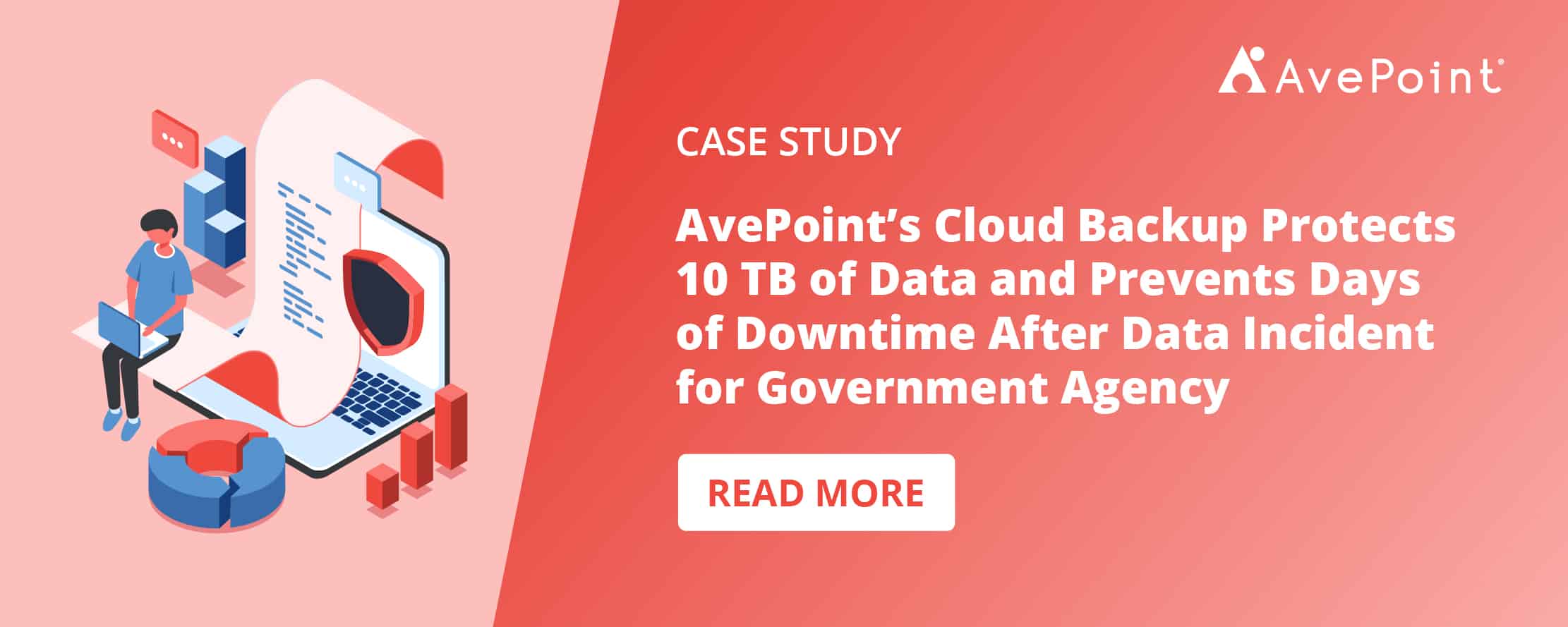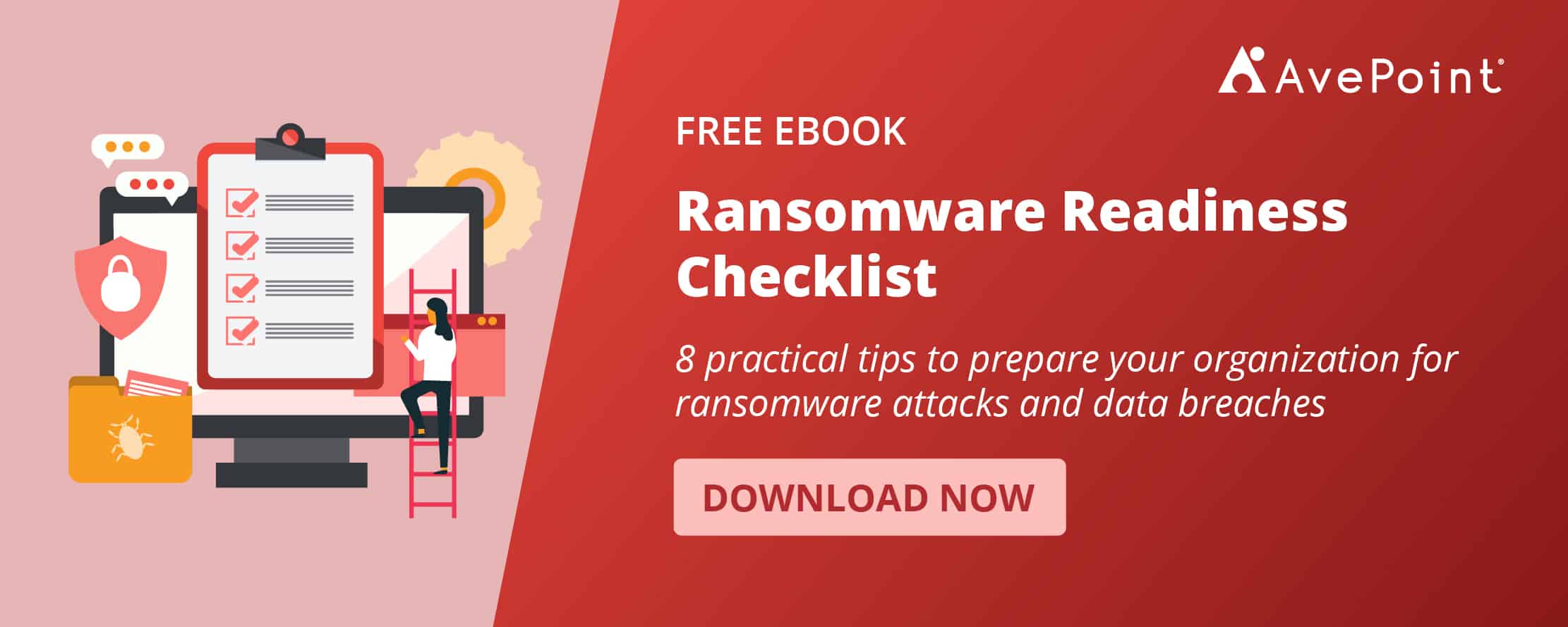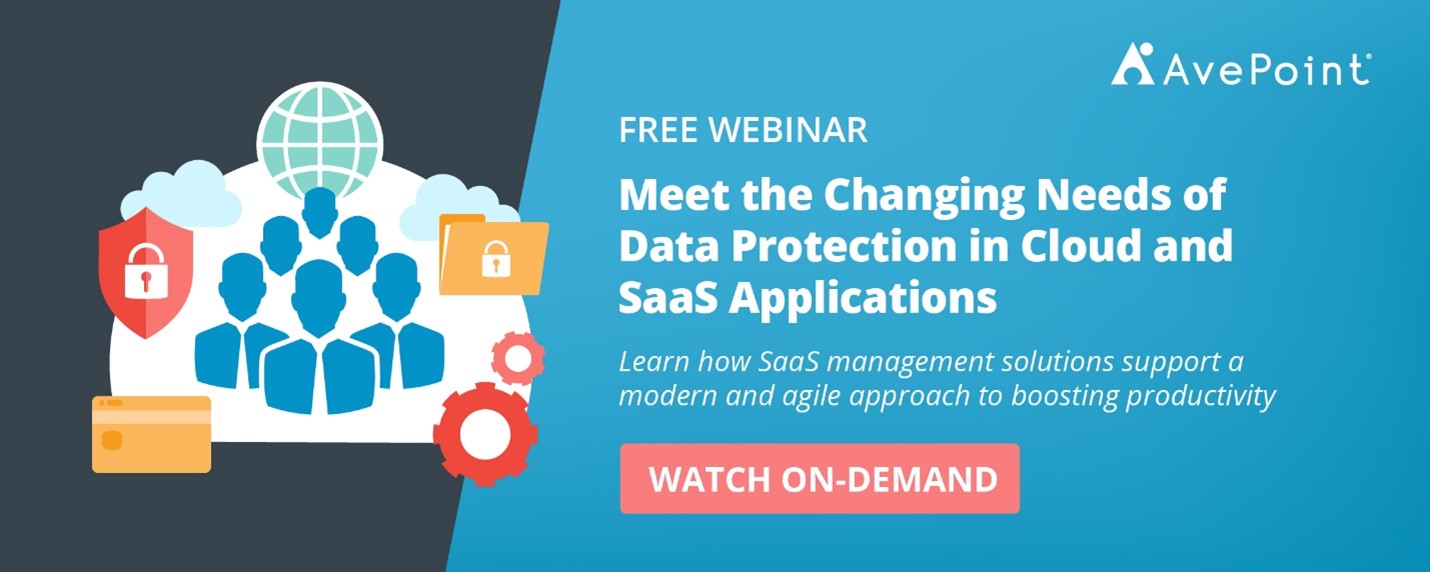World Backup Day: Is Your Data Protected?

World Backup Day was first established as a reminder of how important it is to back up your data to avoid data loss. More than a decade later, the benefits are obvious: most of us know we need to back up our data, and we maintain copies of our files, photos, and, most importantly, work information. In fact, research shows more than 90% of businesses use some sort of data backup, such as cloud backup solutions.
Yet these days, many are questioning if their existing data protection measures are doing enough to keep their information secure, with 67% of IT decision-makers lacking confidence in their ability to recover business-critical data. This is troubling given our growing reliance on data as well as increasingly sophisticated and omnipresent cyber threats like ransomware and phishing.
It’s more important than ever today to have confidence in your backup and recovery measures. So, in honor of World Backup Day, ask yourself: is my backup doing enough to protect my data?
The Importance of Third-Party Data Backup
The unexpected loss of data is far more than a nuisance. Data disruptions can be costly, posing serious risks to your company’s finances. The average cost of data loss ballooned to more than a million dollars in 2022. When the data loss is a result of a data breach, this number skyrockets, with the total cost averaging $4.35 million.
It’s clear data loss can be detrimental to your business, and you need protection in place to prevent it. Unfortunately, most SaaS providers focus on providing a great platform, passing data security and management on to the customer. For example, Microsoft’s Shared Responsibility Model clearly states customers are responsible for protecting the security of their data and identities.
No matter where your important data lives – Microsoft 365 (formerly Office 365), Google Workspace, Salesforce, or any other SaaS application that helps you get work done – in situations like infrastructure failure, user or admin errors, software corruption, or malicious attacks, responsibility for data protection falls on your shoulders. That’s why third-party data backup is critical.
Potential Vulnerabilities in Your Cloud Backup
Backup is essential for continuous data protection. Yet gaps in your cloud backup could be putting your data at risk. Here are five signs you may have vulnerabilities in your data protection strategy.
1. You have multiple backup vendors
These days, no one is working in just one SaaS application, and it may seem like you need multiple vendors to back up your multiple SaaS applications. However, this misconception could be costing you – on average, the cost of data loss in the last 12 months is approaching four times higher for organizations using multiple data protection vendors as compared to those using a single-vendor approach. Instead of a point backup vendor, find one provider who can cover all your critical applications.
2. You don’t have protection against user error
It’s a hard-to-ignore fact: most data loss isn’t the result of freak accidents or malicious outsiders; it’s caused by human error. For example, the National Endowment of the Humanities (NEH) faced a data incident when they realized an entire Exchange Online folder for one of their mission-critical programs was missing.
Fortunately, they were able to use AvePoint Cloud Backup to discover the last recovery point – almost 9 months prior – and determine a user accidentally deleted it. They quickly recovered the folder with Cloud Backup’s object-based restore, salvaging more than 300 applications. Had it not been for Cloud Backup’s rapid discovery and recovery, this folder could’ve been lost for good.
3. Your backup data isn’t encrypted
In today’s climate, there are plenty of threats that may be putting your data security at risk – your SaaS vendor’s security standards shouldn’t be one of them. Data backups are attractive targets for cybercriminals and cyberattacks, and data encryption thwarts these threat actors, making your data unreadable should an unauthorized person attempt to access it, in transit or in your vendor’s storage.
Bonus: You can rest easier if your SaaS vendor encrypts data in transit and in rest and passed third-party assessments like SOC 2 Type II or ISO: 27001 to verify their security postures are secure, leaving no room for potential data breaches.
4. You can’t perform granular restores
Sometimes, our most business-critical conversations and work happen in the least expected places, like Teams chats, Planner tasks, or Viva Engage (Yammer) communities. You must back up and be able to restore this content or risk losing crucial information if a data incident occurs.
Beyond items, granular restores can also protect customizations in your SaaS applications or even application configurations, like Salesforce metadata, which could take days of work for your admins to reconfigure if something were to occur.
Ultimately, without the ability to perform granular restores, you may be able to recover some of your data, but you will still face days or even weeks of downtime as your team tries to rebuild what they lost.
5. You don’t have access to activity reporting
It’s important to understand what activity is occurring in your backup environment, whether if a routine activity was successful or if something fishy is occurring. Particularly as security concerns grow, your admins need to understand who is doing what and when. After all, it takes an average of 207 days to identify a data breach.
A good backup solution will let you monitor your daily changes and detect unusual activities, which not only helps you fix an issue before it occurs but could also stop a potential ransomware attack event at an early stage.
If you’re worried about any of the above or other vulnerabilities in your backup strategy, it may be time to consider a new backup and recovery strategy.
AvePoint Gives You Confidence in Your Data Protection Approach
AvePoint is the leader in multi-cloud backup, recognized by Forrester and Gartner for our ability to protect Microsoft 365, Google Workspace, Salesforce, Dynamics 365, and Microsoft Azure – which includes Virtual Machines (VMs), Active Directory (AD), and Storage – and Power Platform. AvePoint can help you feel confident your data is safe and secure, no matter where it lives.
Backups are performed automatically, as often as every six hours, while encrypting the data with customer-owned encryption keys adds yet another layer of security. You can choose to store the data anywhere, from the default storage location provided by AvePoint or another specified storage location.
With on-demand, granular recovery of content, you can recover business-critical data and maintain all metadata and permissions. Granular restore doesn’t just mean an individual document or version – Cloud Backup also helps you perform security rollbacks to undo unintended permissions changes. AvePoint’s flexible restore not only can put data back in place, out of place, or exported to an offline location, we also make it easy to satisfy Right-to-Be-Forgotten and Data Subject Access Requests (DSAR) for GDPR compliance.
Plus, with the help of AVA, AvePoint’s Virtual Assistant, you will easily be able to find lost content by responding directly to Teams chats to locate lost files or emails, and then easily restore them.
The Bottom Line
This World Backup Day, it’s time to feel confident that your backup provider has you covered. Often, it’s difficult to know your coverage isn’t comprehensive until something bad happens – like when you realize your car insurance is lacking only after you get in an accident, and they don’t cover the damage. However, when it comes to the security of your data, the cost could be much higher than an unexpected mechanic’s bill.
Don’t wait for disaster to strike before confirming your backup is comprehensive. Errors, corruption, and theft happen… but that shouldn’t leave your business in a lurch or your data compromised. With the right provider, you can rest easy knowing your data is protected.
Kayla Haskins is a Content Marketing Manager at AvePoint, writing about all things cloud collaboration – including Power Platform, Microsoft 365, Google Workspace, and Salesforce. An advocate of operational governance and process automation, Kayla creates content that helps businesses manage technology to drive efficiencies in the modern workplace and make work/life balance a reality.

